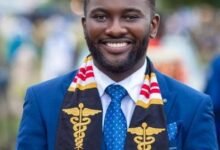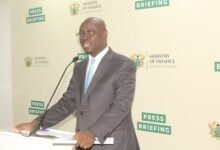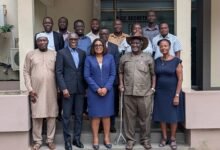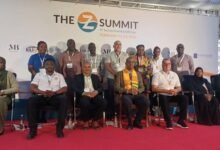Kintampo Health Research Centre launches 25 years anniversary

The Kintampo Health Research Centre (KHRC), on Thursday launched 25 years anniversary of in-depth research into health evidences to shape policy direction and initiatives in the sector.
Themed, ‘Sustaining 25 years of excellence in health research: Impacting communities, shaping health policy and practice’, the anniversary also marked the inauguration of the biennial Dr Paul Arthur Lecture Series.
It had in attendance top-notch scientists, medical practitioners, development partners, traditional rulers and academia among others to celebrate the centre’s prowess in health research and providing critical outcomes over the years.
In an address, Deputy Minister of Health, Mr Alexander Abban highlighted the immense contribution of the KHRC to arriving at key interventions for the health sector, the latest of it being the RTS’s malaria vaccine.
According to him, the centre was pivotal in carrying out series of test on the efficacy and safety of the vaccine and recommended its usage across the three African countries “so why the hue and cry over the vaccine?”
“The social media brouhaha is not doing us any good as the researchers have done a thorough job on the vaccine. What they need is our commendation and not condemnation,” he urged.
Mr Abban congratulated the KHRC for its dedicated service to advancing health outcomes over the years pledging the ministry’s continuous support to the centre through the mobilisation of needed resources for research activities.
“We will also continue to give support to the research centres across the country to undertake their core activities considering the central role they play in development of health policies and programmes,” he pledged.
The deputy minister, however, advised the centre to periodically update staff skills, increase its research scope and strengthen its monitoring and evaluation systems to meet the health needs of citizens.
Dr Anthony Nsiah-Asare, Director General of the Ghana Health Service (GHS), stressed the need for more investment into research centres to come up with proactive solutions to the numerous challenges confronting service delivery.
“As a service, we appear to be faltering in the area of prevention of mother-to-child transmission of HIV where the target of ensuring that no child born to a mother with HIV is infected appears to be far from being achieved.
We are still grappling with low TB case detection rate and anaemia in pregnancy even at 36 weeks is a cause of concern. How do we find solutions to some of these issues, these are some of the areas that we need our research,” he maintained.
Imploring the research centres across the country to be more proactive in their work, the DG assured of his support to enable them to deliver on their mandate to build a safer and healthier country.
In a brief remark, the World Health Organisation (WHO) Country Representative, Dr Owen Kaluwa asked that “Ghanaians should be proud to have a pool of highly learned scientists who are authorities in their respective fields of work and are contributing to the body of knowledge not only in Ghana but globally”.
Referring to the KHRC’s role in the introduction of the new malaria vaccine, Dr Kaluwa expressed hope the vaccine would not only save tens of thousands of children in Africa but “reduce financial burden on families due to malaria”.
“WHO will continue to collaborate with the KHRC and other research centres to improve healthcare delivery in the country,” he pledged.
On his part, Director of KHRC, Dr Kwaku Poku Asante listed achievements of the centre over the years including researching into treatments for emerging non-communicable diseases and testing the safety and efficacy of the world’s first malaria vaccine.
He, however, deplored inadequate funding to support the centre’s activities pointing out that about 70 per cent of its funds were from donor partners, a trend which he feared could threaten the health sector in coming years.
Dr Asante urged the government to urgently address the issue of mobilising domestic resources to advance research and efficiently attend to the health needs of the citizens.
BY ABIGAIL ANNOH






